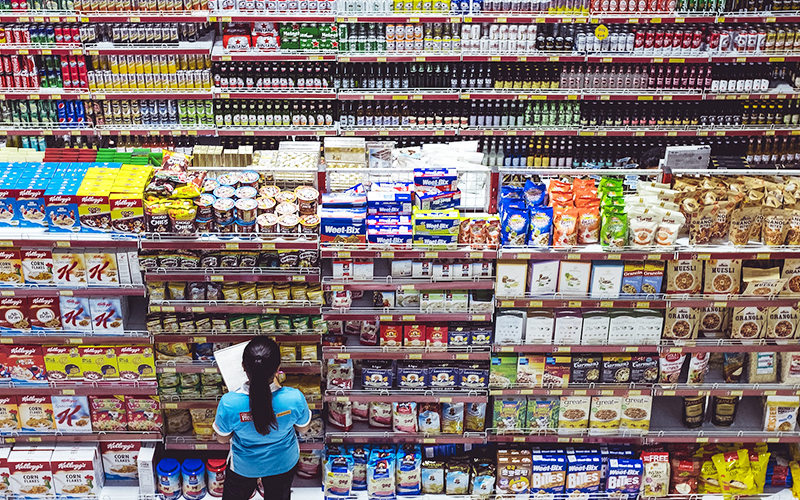By Philippe Jouvet, associated.
Logistical penalties: How to interpret the silence of the legislator on the 1 year prescription and on the 2% ceiling?
Pending the publication of guidelines from the DGCCRF regarding the interpretation of the new provisions of Articles L.411-17 and L.411-18 of the French Commercial Code, suppliers and their distributor customers will be keen during the been to develop and each propose their own interpretation of the Descrozaille law of March 30, 2023 on the following two subjects which are already causing controversy:
- The issue of the one-year limitation of logistics penalties (i)
- The methods for calculating the ceiling of 2% of the value of the products ordered (ii)
I) One year prescription
As a reminder, article L.411-17 of the Commercial Code specifies that "no logistical penalty can be imposed for non-performance of contractual commitments occurring more than one year previously. ". This requirement is not provided for penalties that would be imposed by the supplier on the distributor (regulated by article L.411-18 of the Commercial Code).
In the absence of interpretation of the Administration or the courts on how to apprehend this rule of limitation, it is up to the parties to position themselves.
The interpretation favorable to the distributor customer is to consider that this rule is applicable for the non-performance of contractual commitments (missing on delivery for example) from the 1er April 2023 (date of entry into force of the law) and that thus no penalty can be claimed from 1er April 2024 for breaches of contract prior to 1er April 2023.
This reading prevails if one legitimately considers that the new law is only valid for the future.
The supplier will be tempted to offer another interpretation : the law applies retroactively and thus any notice of penalty resulting in a breach prior to 1er April 2022 should, according to him, be considered illegal. On the basis of this interpretation, he will refuse any penalty sanctioning a delay or a lack of delivery occurring prior to the 1er April 2022.
The retroactive application of the law is understood with regard to the objectives developed by the Descrozaille bill.
Both interpretations are valid. (retroactive law or not) and it is the contractual formalization for the choice of an interpretation that will be decisive, in the absence of precision from the Legislator, the Administration or the case law.
II) Ceiling of 2% of the value of the products ordered
It is difficult to say with regard to the wording of this part of article L.411-17 of the Commercial Code: “ The penalties imposed on the supplier by the distributor are proportionate to the damage suffered with regard to the non-performance of contractual commitments, within the limit of a ceiling equivalent to 2% of the value of the products ordered falling within the category of products within which the non-performance of contractual commitments has been noted. ».
Discussions between suppliers and distributors have already started to find out what the notion of " product category »
The definition of the product category is not, however, in our view, what is most important for determining the base for logistics penalties.
The main thing concerns the base of the value of the products ordered : is it the value of all products of the category of products ordered or only the value of the missing products of the category of products ordered?
Parliamentary work (amendment proposed by Senator Loisier in February 2023 in particular) would suggest that the first interpretation would prevail: “ If a distributor orders, at the same time, one thousand boxes of cereals and one thousand packets of pasta, and a failure is observed on 20 boxes of cereals, the logistics penalty may not be greater than 2% of the value of the order of grain, not the value of the total order. »
But these clarifications were more, in our opinion, made to define the notion of category and it is difficult to draw a definitive conclusion on the question of the base (products ordered vs only missing products).
The example above could be read as follows:
If the cereal box costs 5 euros, the value of the order will then be 5000 euros (one thousand boxes) and not 100 euros (20 boxes). The penalty can then be capped at 100 euros (2% of 5000) and not 2 euros (if the value of the missing products is taken as the basis: 2% of 100 euros).
In this same example, the value of the penalty is equal to the value of the order of the missing products (100 euros). The penalty is then equivalent to 100% of the value of the missing products where previously the practice (in particular provided for in the contracts of the distributors) was to cap from 15 to 30%.
The principle of proportionality of the penalty to the damage suffered (which appears in both article L.411-17 and article L.411-18) may then make it possible to reconcile the different interpretations.
If the application of the 2% rule (which must be a ceiling and not a floor) leads to a penalty amount disconnected from the damage suffered by the distributor or the supplier, then the product value base should be retained ordered which is the most respectful of the principle of proportionality, so that the logistical penalty can fairly and proportionally repair the damage suffered.
Suppliers or distributors, be vigilant about the interpretation and formalization of your positions!
Philippe Jouvet
Partner
A lawyer specializing in competition, distribution and consumer law, philippe jouvet is an expert in the agricultural and agri-food sector.
Before joining Ginestié Magellan Paley-Vincent as a partner, Philippe Jouvet was Legal Manager for competition, distribution and consumption within the TEREOS cooperative, where he implemented the system provided for by the EGALIM Law.





